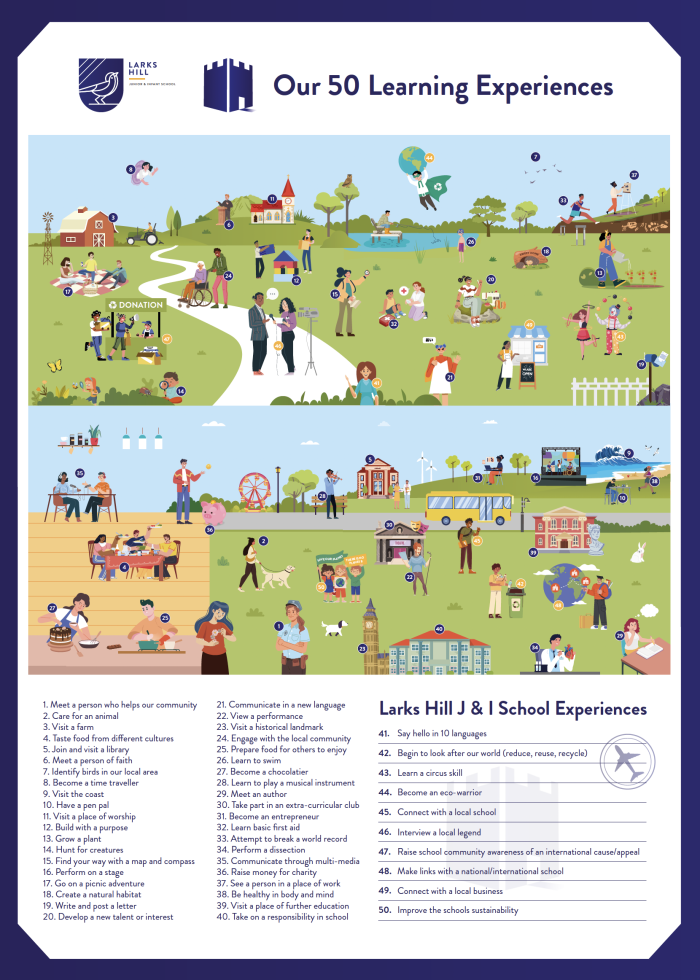A good education is the springboard for lifelong learning and an understanding and appreciation of others. It also facilitates the development of skills and knowledge that allows young adults to cope with whatever life throws at them. We recognise that learning is not just confined to the classroom; learning can occur anywhere! What is important for learning to occur is the resources, experiences and people that make it happen. Remember not everything we learn can be recorded in copy books or expressed as a grade.
In all of our primary schools we interleave the development of a child’s cultural capital at the heart of our bespoke thematic curriculum. Cultural capital can be defined as the accumulation of essential knowledge needed to be educated citizens to engender an appreciation of human creativity and achievement. It is through this understanding that we have developed a non-negotiable list of experiences to empower pupils’ learning and deepen their knowledge of both curriculum and non-curriculum content. In short, the development of additional experiences for our pupils will strengthen the fabric of their learning and allow them to navigate through school with a deepened sense of security and happiness.
Each primary school in our Trust has carefully selected the experiences that will be contextually important to the children in their care. These chosen experiences and activities have been incorporated into our curriculum to enrich learning and enhance the children’s understanding of the world that we live in.

Young people need to be able to experience learning in multiple contexts, locations and formats – this is how resilience and creativity are nurtured.

